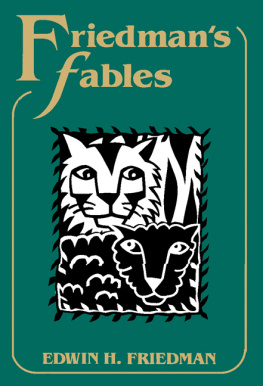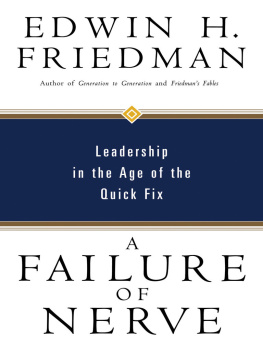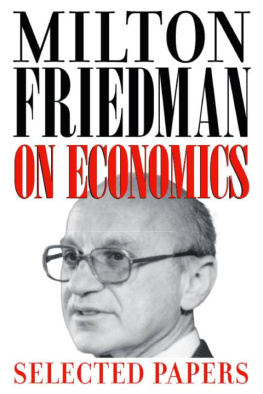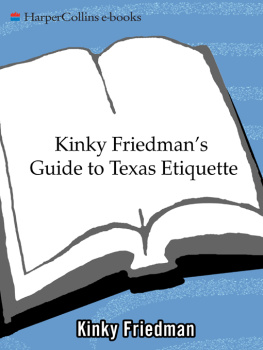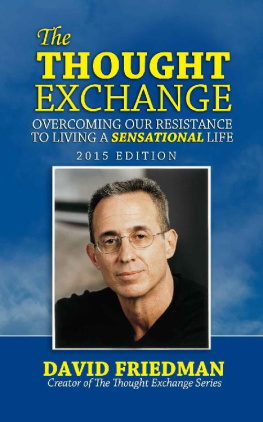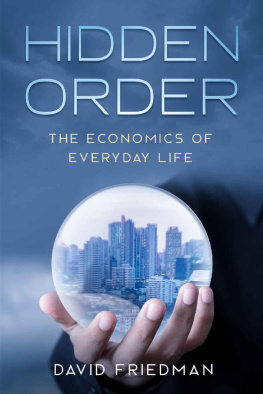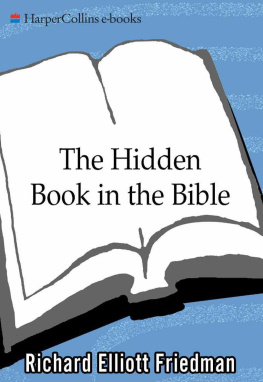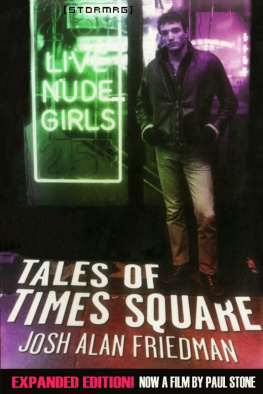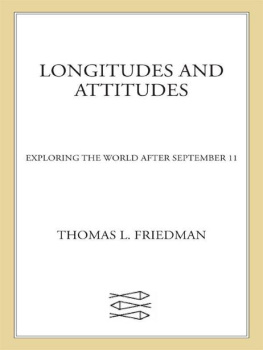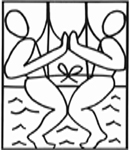Edwin H. Friedman

T HE G UILFORD P RESS
New York London
EPUB Edition ISBN: 978-1-4625-1149-5; Kindle Edition ISBN: 978-1-4625-1150-1
1990 The Guilford Press
A Division of Guilford Publications, Inc.
72 Spring Street, New York, NY 10012
www.guilford.com
All rights reserved
No part of this book may be reproduced, translated, stored in a retrieval system, or transmitted, in any form or by any means, electronic, mechanical, photocopying, microfilming, recording, or otherwise, without written permission from the Publisher.
Last digit is print number: 19 18 17 16 15 14 13 12
Discussion Questions section was previously published separately.
Library of Congress Cataloging-in-Publication Data
Friedman, Edwin H.
(Fables)
Friedmans fables / by Edwin H. Friedman.
p. cm.
ISBN-10: 0-89862-440-1 ISBN-13: 978-0-89862-440-3
1. Conduct of life. 2. Interpersonal relations. 3. Interpersonal communication. I. Title. II. Title: Fables.
BF637.C5F75 1990 90-47336
158.2dc20 CIP
Illustrations by Joseph Cavalieri and Stephen Wilder
These fables are dedicated to the tutors of my imagination:
The English Department of Bucknell University
for cultivating my love for metaphor
Rabbinic Midrashfor teaching me how playfulness
can turn irreverence into an act of faith
Dr. Murray Bowenfor opening my eyes to the
protoplasmic unity of creation
My mothers witshe was the quickest
one-liner I ever met
Contents
God invented man because he loves stories.
HASIDIC SAYING
Introducing the Author and His Characters
T he publication of these fables took longer than expected. The delay began when the publisher gave them to a stylist. He jazzed them up, but the glitz clouded the primitive naivet essential to this art form like the shadow thrown by a developing cataract. I was horrified. Next, various members of the staff tried to help, and they varied in their opinion about every single one. I became confused. Finally, they were given to a rewrite man, who wanted me to rewrite them. I offered to return my advance. Though I also began to realize that the fables were already doing exactly what they were supposed to doengage readers personally and stimulate their own imaginative powers.
I was, however, a little surprised at the depth of my own reactions. Why was I taking such umbrage? At first I thought it was the form. After all, how would you like it if your still-life was criticized on the basis of how the flowers were arranged? Next I thought it was the plots. What right, I thought, has anyone to criticize your story because of the story you chose? But later I saw it was the characters. Over the years, as I had read these fables to clients and to audiences, they had become my companions. They were not merely my creations but, ultimately, as I have tried to show in the Epilogue, my partners in creation. They had even influenced the development of one another. No wonder I was so angry; everyone was interfering with my relationships.
Then I remembered what Luigi Pirandello had written about his Six Characters in Search of an Author. After describing how they visited his mind one night and refused to go away until he gave their possessing presence stage for a separate existence, he wrote:
Every creature of fantasy and art, in order to exist, must have his drama, that is, a drama in which he may be a character and for which he is a character. This is the characters raison dtre, his vital function, necessary for his existence. (Naked Masks: Five Plays, 1952, p. 368)
My experience with the characters in these fables was similar. Each entered my mind most unexpectedly and, once inside, surfaced repeatedly until I could finish their plot. Except, unlike Pirandellos experience, I had joined them as part of the cast. The usual result of long-term performances, of course, is that everyone develops a bond. In a very real sense, therefore, by publishing their stories I let my characters go and allow myself to experience the sadness and withdrawal that follows the break-up of any troupe.
There is a sweetness to the sadness, however, for my experience with my characters also differed from Pirandellos in a more fundamental way. Their initial visit never came in my solitude. It was always when I was in dialogue with some other. The context of their birth, every one of them, was when I was listening to another persons tale. Born of dialogue, the raison dtre of these characters is in their dialogic potential. Their vital function on this planet is to talk to the reader, and they fully expect to be talked back to. Not only thatas with the conditions of their birth, the reader will find that if introduced to others, privately or publicly, they are exceedingly adept at stimulating conversation. Indeed, perhaps because of the context of their being, they have a way of affecting bonds. This is the drama that is necessary for their existence.
An authors characters also act out his own drama, too, of course. The part of my story that is hidden here is the past three decades I have spent in the Washington metropolitan area, intimately involved in our species three major systems of salvation: politics, religion, and psychotherapy. I have observed a whole generation go by of families, of governments, and of modes of therapy, all the while struggling to discern the illusion of change from the reality that things are pretty much the same as when I got here. The universality of this experience has left me wondering, Why has all the intelligence, and wisdom, and experience, and knowledge that has advanced our species in so many other areas of civilization not worked nearly as well in the improvement of our species itself? Is it that human nature is simply human nature? Are we somehow all cursed? Or is it something more simple than that, like the possibility that we are all caught up in myths about what it takes to get others to hear? For everywhere the paradox seems to be the same: Not only are communicants failing to listen to their mentors, they are actively tying their tongues.
The characters in these fables, therefore, also have another role than the part they play in their own plot. Their separate stories have been organized in such a way that the network of their collective fantasies can dramatize the reality of that perversity. In this they are iconoclasts, and the illusions they aim to shatter are:
that communication is a cerebral phenomenon rather than an emotional process
that insight will work with people who are unmotivated to change
that resistance to your message can be overcome by trying harder
that seriousness is deeper than playfulness
Sit back in your box, therefore, and let them strut their stuff across the stage of your own imagination.
THE
FAILURE
OF
SYNTAX
The colossal misunderstanding of our time is the assumption that insight will work with people who are unmotivated to change. Communication does not depend on syntax, or eloquence, or rhetoric, or articulation but on the emotional context in which the message is being heard. People can only hear you when they are moving toward you, and they are not likely to when your words are pursuing them. Even the choicest words lose their power when they are used to overpower. Attitudes are the real figures of speech.

